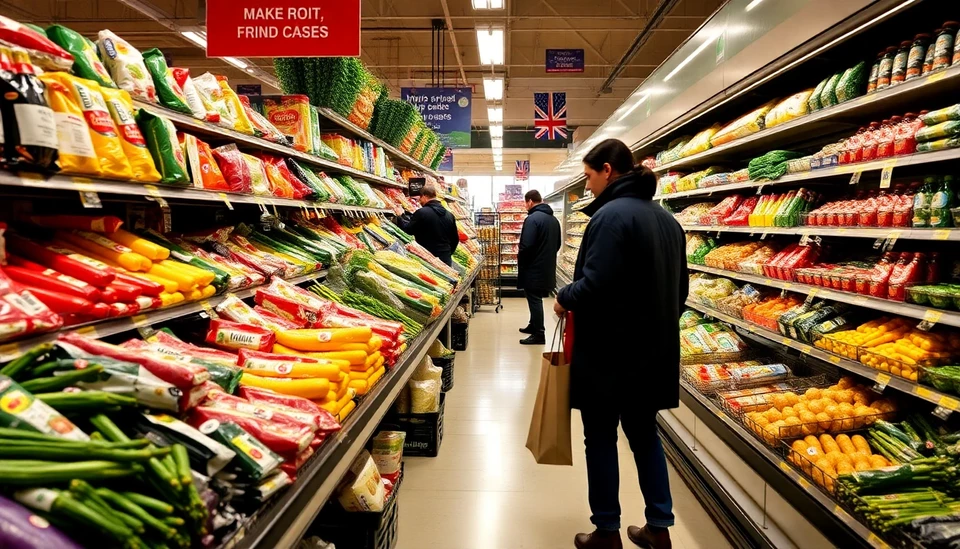
The latest data has revealed a concerning trend in the United Kingdom as food inflation surged to its highest level in nine months. This escalation in prices is not only a significant burden for consumers but also amplifies existing pressures on the UK's labor market. The findings indicate a troubling trajectory, with analysts and policymakers bracing for its substantial economic implications.
According to the Office for National Statistics (ONS), the annual rate of food inflation has now climbed to 15.7%. This marks an increase from the previous figures and highlights the ongoing struggle for households grappling with the escalating cost of living. Essential food items, including dairy, vegetables, and meat, have recorded the most notable price hikes, placing additional strain on family budgets.
As consumers adjust to these rises, several economists have pointed out that food inflation is likely to exacerbate the already tense labor situation in the UK. Rising prices means that workers, particularly those in lower-income brackets, may demand higher wages to keep up with the cost of essentials. This labor squeeze is pertinent, especially as negotiations between employers and employees have been fraught with challenges in recent months.
The Bank of England has been keenly monitoring these inflation figures as they develop strategies to manage economic recovery post-pandemic. The expectation is that sustained food inflation could prompt the Bank to reconsider its monetary policy strategies, including interest rate adjustments. Such changes could either help or hinder economic growth, depending on how they are implemented and received by markets.
Moreover, the implications of rising food costs stretch beyond individual households. Businesses in the food and hospitality sectors are also feeling the heat, with many reporting decreased consumer spending as patrons tighten their belts. This has resulted in a sluggish recovery for restaurants and cafes, that had begun to rebound from the pandemic's devastating effects.
Political leaders are under mounting pressure to address these economic challenges head-on. Initiatives aimed at relieving some financial strain on average citizens are being discussed, but tangible actions remain to be seen. As negotiations rage on, the specter of food inflation looms as a pivotal issue that will not only affect consumers but also shape the labor landscape in the UK moving forward.
The rising inflation rate necessitates a multi-faceted approach from both policymakers and industry leaders to navigate this complex situation. With the cost-of-living crisis expected to linger, a collaborative effort is essential to ensure that both food affordability and job security are prioritized in the coming months.
In conclusion, as the UK grapples with a significant increase in food inflation, the connection between rising costs and labor market pressures becomes increasingly clear. Analysts assert that urgent action is needed to cushion the impact on the workforce and ultimately safeguard economic stability.
#UKFoodInflation #CostOfLiving #LaborMarket #Economy #Inflation #BankOfEngland
Author: Laura Mitchell




